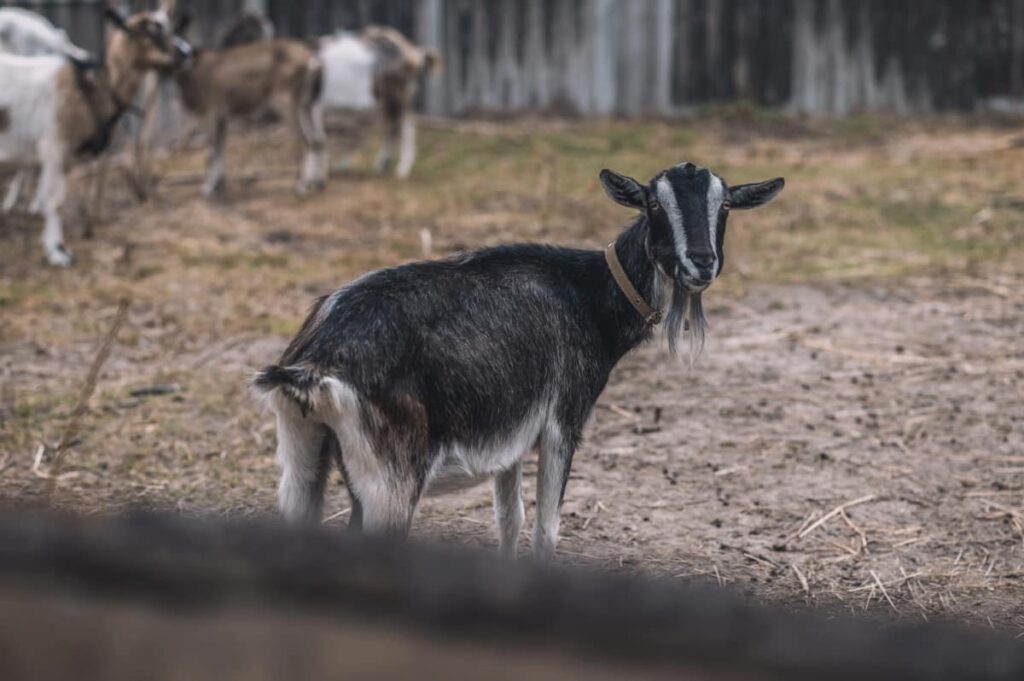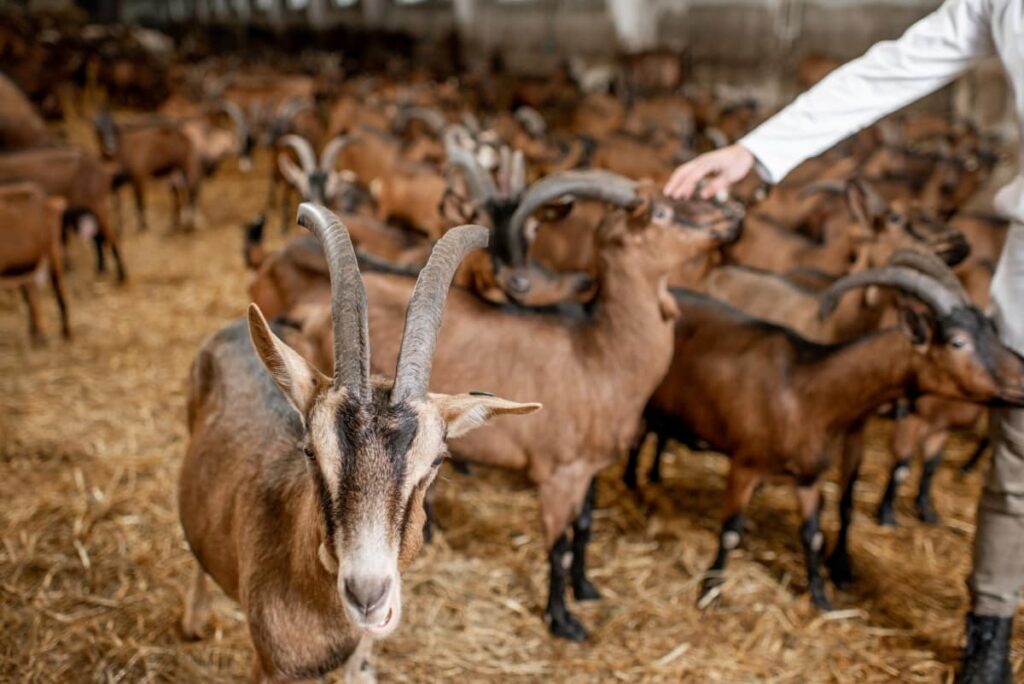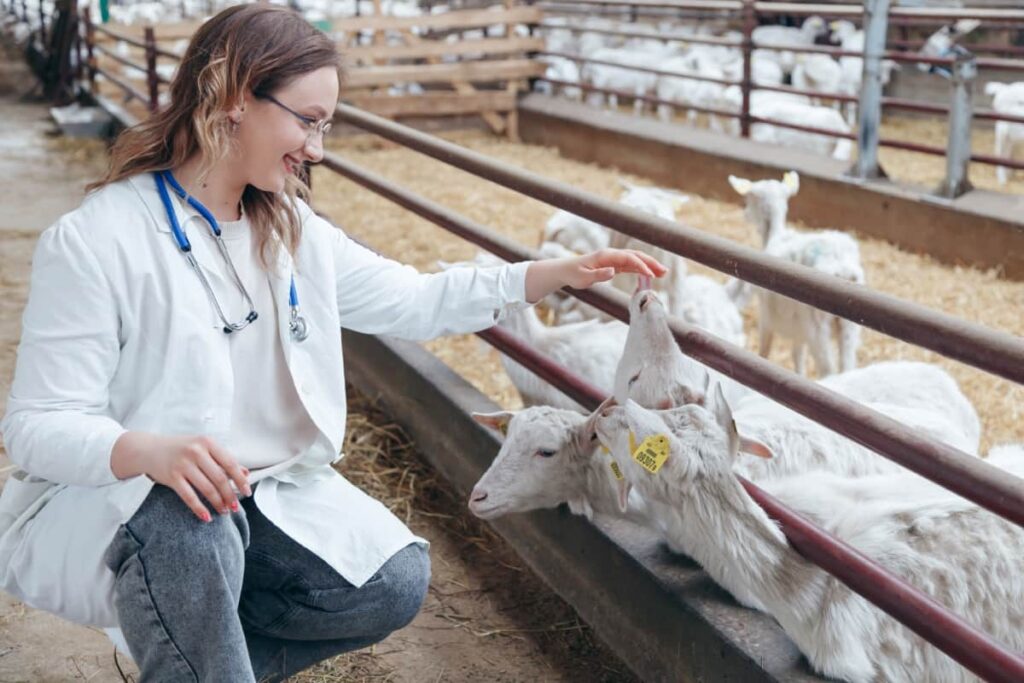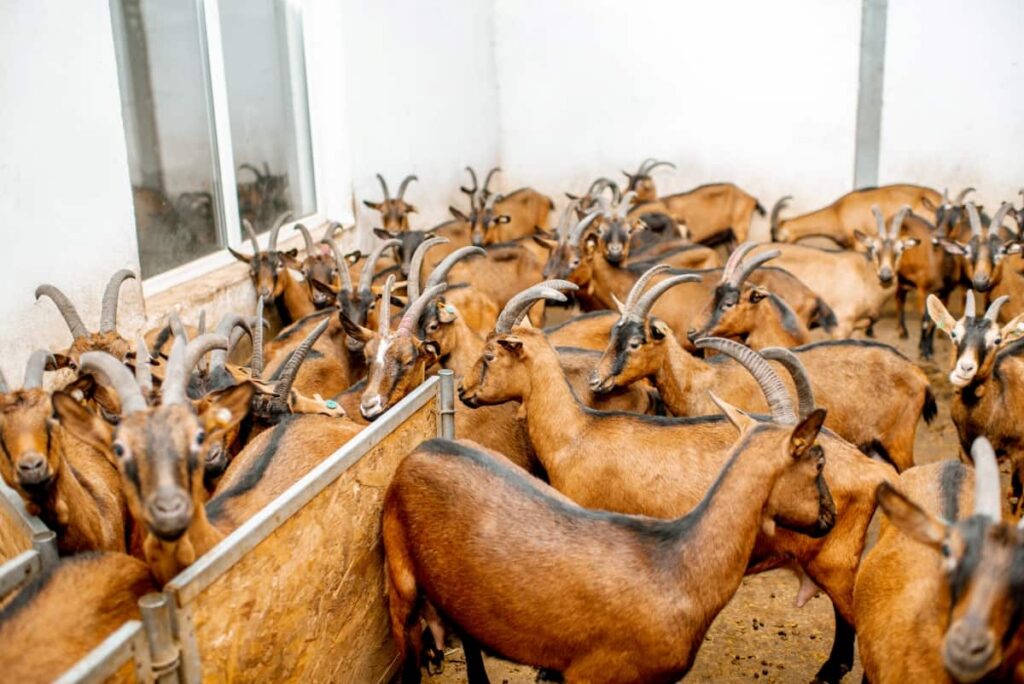Effective goat health management practices encompass a range of strategies and actions to promote your goats’ overall well-being. It involves implementing measures to prevent diseases, monitoring their health regularly, and taking prompt action when issues arise. Effective goat health management practices ensure your herd remains healthy and free from common diseases.

Goat Health Management
Importance of Vaccinations in Goat Health Management
Vaccinations are essential for maintaining the health of your goats. Vaccinating your goats helps prevent these diseases’ spread and ensures their overall health. The most important vaccination for goats is against tetanus. By vaccinating your goats against tetanus, you are providing them with vital protection. Another essential vaccination for goats is against clostridial diseases such as enterotoxemia (overeating disease) and blackleg.
These diseases can cause severe diarrhea, loss of appetite, fever, and ultimately death. Vaccination helps to boost their immune system and protect them from such deadly infections. Vaccines for respiratory illnesses like pneumonia should also be administered regularly to minimize the risk of respiratory problems among your goat herd. Consulting with a veterinarian specializing in livestock health will help you determine which vaccinations are necessary for your goat herd.
Implementing Proper Biosecurity Measures to Prevent Disease Transmission
Regularly disinfecting equipment, tools, and vehicles that come into contact with your goats is another essential practice. Proper waste management in goats plays a significant role in preventing disease transmission as well. Maintaining good hygiene practices within your goat housing facilities is vital too. Regularly clean and sanitize feeding areas, water troughs, bedding materials, and any surfaces that may come into contact with the goats.
Maintaining a Clean and Hygienic Environment for Goats
Regularly cleaning the barn or shelter is essential. Proper ventilation is important in maintaining a healthy environment for your goats. Regularly sanitizing feeding troughs, water buckets, and other equipment goats use is vital. Use disinfectants that are safe for animals to kill bacteria and viruses effectively. Frequent fencing inspections should be done to ensure there are no gaps or loose wires where predators can enter or where goats can escape. Regularly rotating grazing areas allows parasites in droppings to die off before reintroducing goats into those areas.
In case you missed it: Pasture Management for Goats: Grazing Systems and Forage Selection

Providing a Balanced and Nutritious Diet for Optimal Health
Goats are herbivores, so their main source of nutrition should come from high-quality forage such as hay or pasture. In addition to forage, goats also require adequate protein, vitamins, minerals, and water. Remember that providing a balanced diet isn’t just about meeting basic nutritional needs; it also contributes to healthier coats and stronger immune systems against common diseases prevalent in goat populations.
Regularly Monitoring and Managing Parasite Infestations
The effective way to monitor parasites in goats is through regular fecal examinations. By analyzing a small feces sample, you can determine if they have internal parasites such as worms or coccidia. This allows for early detection and treatment before the infestation becomes severe.
To manage parasite infestations, rotational grazing is often recommended. This involves dividing pastures into smaller sections and regularly rotating the goats between them. In addition to rotational grazing, strategic deworming should be implemented based on veterinary recommendations. Work with your veterinarian to develop an appropriate deworming schedule tailored to your goat herd.
Recognizing and Treating Respiratory Diseases in Goats
The main respiratory disease in goats is pneumonia, which bacteria, viruses, or parasites can cause. Symptoms include coughing, rapid breathing, nasal discharge, and fever. It’s important to isolate sick animals immediately to prevent the spread of infection. Another respiratory condition that affects goats is lungworm infestation. This occurs when goats ingest larvae from contaminated pastures or water sources.
Infected goats may display symptoms such as coughing, weight loss, reduced appetite, and increased breathing effort. Prevention plays a critical role in managing respiratory diseases in goats. This includes proper ventilation in housing facilities to minimize moisture accumulation and reduce exposure to pathogens. Regular cleaning of barns or shelters helps maintain hygiene levels and reduces disease risks.
Preventing and Managing Gastrointestinal Disorders in Goats
Gastrointestinal disorders can be a common issue for goats, but they can be effectively prevented and managed with proper management and preventive measures. Regular monitoring of your goats’ feces is crucial in identifying any signs of gastrointestinal problems in goats.
In case you missed it: How to Utilize Goats for Pest Control in Agroforestry Systems

Diarrhea, constipation, or abnormal color and consistency should not be ignored, as these could indicate underlying issues. Proper sanitation practices are also key in preventing gastrointestinal disorders. Keep the goat’s living area clean by regularly removing manure and ensuring good ventilation to reduce humidity levels, which can promote harmful bacteria growth.
Identifying and Addressing Common Skin Conditions in Goats
The most common skin condition in goats is mange caused by mites. Infected goats may experience intense itching, hair loss, scaly patches, or crusty lesions on their skin. Prompt identification and treatment with appropriate medications, such as sulfur-based dips, can help eliminate the mites and alleviate symptoms. Another problem is fungal infections like ringworm.
It appears as circular patches of hair loss with a red or grayish center. Treating ringworm involves isolating affected animals, thoroughly cleaning the environment, administering antifungal medication topically or orally, and practicing good hygiene to prevent its spread. Skin allergies are another concern that goat owners should address promptly. Revising diet plans for specific allergic reactions and proper environmental management techniques often helps alleviate symptoms.
Ensuring Proper Hoof Care and Preventing Foot Problems
Proper hoof care is essential for maintaining your goats’ health and well-being. Neglecting their hooves can lead to various foot problems that can be painful and debilitating for these animals. Overgrown hooves can cause discomfort and make it difficult for goats to walk properly. Trimming should be done regularly, especially if your goats are not naturally wearing down their hooves through natural activity on rough terrain.
In addition to trimming, inspecting the hooves regularly for signs of infection or injury is essential. Proper hygiene plays a crucial role in preventing foot problems as well. Ensure your goat’s living area is clean and free from moisture or standing water, as damp conditions provide a breeding ground for bacteria and fungi that can infect the hooves.
Establishing a Routine Veterinary Care Schedule for Goats
Proper veterinary care is crucial for maintaining the health and well-being of your goats. Like other animals, goats require regular check-ups and preventive care to prevent common diseases and ensure optimal health. During these routine visits, your veterinarian will thoroughly examine each goat, checking their overall body condition, respiratory system, gastrointestinal tract, hooves, and more. This allows them to find potential issues early on before they become serious problems.
In case you missed it: Essential Goat Farming Equipment and Tools for Goat Farm Operations

Vaccinations are essential for preventing various diseases that can affect goats. Common vaccines include tetanus, clostridium perfringens types C&D (which cause enterotoxemia), rabies, and pneumonia caused by Pasteurella bacteria. Remember that establishing a good working relationship with your veterinarian is key, and they are there not only as healthcare providers but also as trusted advisors when it comes to managing the overall well-being of your goat herd.
Frequently Asked Questions about Goat Health Management
What are Some Common Diseases That Can Affect Goats?
Goats can be susceptible to various diseases, including respiratory infections, gastrointestinal disorders, and skin conditions. Goat owners must be aware of these potential health issues to prevent and treat them effectively.
What Should I Feed My Goats for Optimal Health?
Please provide them with good quality hay or pasture and appropriate grain supplements based on their nutritional requirements.
How do I Monitor and Manage Parasite Infestations in My Herd?
Parasites commonly affect goats, causing issues like weight loss and anemia if left untreated. Regular fecal testing helps identify parasites early so that appropriate deworming protocols can be implemented under veterinary guidance.
How Often Should I Vaccinate My Goats?
Vaccinations are crucial for preventing common diseases in goats. The frequency of vaccination depends on various factors, such as the region, age, and breed of your goats. Consult with a veterinarian to find the appropriate vaccination schedule for your herd.
Conclusion
Effective goat health management practices contribute to sustainable farming systems. Farmers can minimize antibiotics and other medications that may harm the environment or contribute to antimicrobial resistance by implementing preventive measures like vaccinations. Maintaining your goats’ health is crucial for their overall well-being and productivity.
- Goat Feed Options for Weight Gain
- Types of Grass Growing for Goat Farm
- How to Train Goats for Milking: A Beginners Guide
- Goat Milking Practices and Equipment: A Beginner’s Guide
- Goat Farming for Fiber: Producing Mohair and Cashmere
- Maximizing Goat Milk Production: Tips for Dairy Goat Farmers
- Goat Farming as a Family Business: Strategies for Success
- Profitable Kenya Goat Breeds for Commercial Dairy and Meat Business
- Unlock the Secrets of Oberhasli Goat: Discover Raising and Management Practices